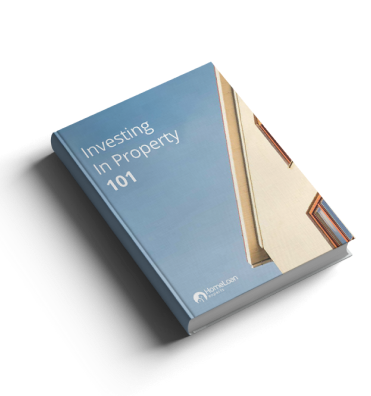The main difference between residential and commercial property investment is that commercial properties typically offer higher rental yields but come with higher risks, while residential properties usually provide lower rental yields but are easier to finance and manage, making them more suitable for beginner investors.
As commercial property is more vulnerable to economic downturns, you need a particularly keen understanding of the economy, along with the right investment strategies, to succeed with it. For this reason, most beginners should probably start with residential property.
However, if you want to take a closer look at both sides before you invest, here are the eight key differences between residential and commercial property investment.
8 Key Differences Between Residential And Commercial Property Investment
1. Lease Terms And Length
There are several differences between most commercial and residential leases. First, commercial leases are usually longer than residential leases. The longer the lease, the higher the value, as tenants can be relatively challenging to secure, especially when there is an economic downturn.
Commercial real-estate leases are more complicated as well. As the primary use of commercial property is business related, leases can require extensive help from lawyers and financial experts. For example, you may need ‘exclusivity of trade’ clauses to ensure only a particular type of business uses the property.
2. Vacancy Periods
Vacancies tend to last much longer in commercial real estate than in residential real estate. There are many reasons for this but one of the main ones is that the economy affects the commercial market more than the residential market.
So, if you’re considering investing in commercial property, keep in mind that you may very well have to cover the property’s loan repayments and other expenses without the support of rental income for a long period at some point.
3. Maintenance And Tenant Behaviour
Commercial tenants lease a property long term to run a business, making them responsible for maintaining the property’s integrity.
It’s common for the investor to put this in the lease terms, making the tenant responsible for expenses such as insurance, land tax, maintenance and repairs. This can mean commercial property sometimes generates better cashflow.
In the residential market, the landlord takes care of these expenses.
4. Annual Rent Increases
Unlike residential leases, commercial leases commonly include a fixed annual rent increase, with the percentage ranging from 3-4%. Setting a fixed incremental increase in the lease ensures that the income you’re generating will keep up with inflation as time goes by.
5. Which Offers Higher Rental Yields: Commercial or Residential Property?
With an average rental yield ranging from 5-12%, commercial property clearly beats the residential property average of about 3-4%. This is another reason commercial properties often have better cashflow.
6. Which Investment is Harder to Finance: Residential Property or Commercial Property?
As lenders consider commercial properties a higher risk, they’re harder to finance than residential investments. Lenders usually require a minimum deposit of 30% for commercial properties; residential real estate often can be purchased with deposits as small as 5%.
The interest rates are also higher for commercial loans than for home loans. You can read more about how to finance a commercial property loan here.
7. Is Commercial Property More Expensive than Residential Property?
Although it’s more complex and more expensive to finance commercial properties, investing in commercial properties can often be less costly than investing in residential properties in the long run. This is because commercial properties produce higher yield than residential properties, and most of the maintenance expenses are taken care of by the landlord.
The price tag for some commercial properties runs into the millions, others are cheaper than homes.
8. Which Provides More Capital Growth: Commercial Property or Residential Property?
Various things affect capital growth, from location and the state of the economy to lease terms. However, the consensus is that commercial property has slower rates of capital growth than residential property. This is why commercial property’s value is more directly related to its ability to attract and retain long-term tenants for high rental yields.
Bonus tip: read more about rental income versus capital growth here.
Need To Secure An Investment Loan? We’re Here to Help
If you’re looking to finance an investment loan or secure pre-approval, Home Loan Experts is here to help.
Call us on 1300 889 743 or enquire online to speak to one of our mortgage brokers, who can compare the loans available from several lenders.
We recommend that you seek independent financial advice before borrowing money to invest.
Property Investment Guide 101
Learn the ins & outs of investing in properties from an experienced property investor and founder of Home Loan Experts, Otto Dargan.

Disclaimer: Over the next few days, you’ll receive additional guides to help you on your homebuying journey. Occasionally, you’ll receive carefully curated home-buying tips, offers & schemes, and news articles. You can unsubscribe any time you want. View our Privacy Policy
